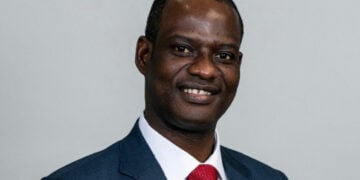An associate professor and head of Postgraduate Studies at Robert Gordon University (RGU), Judith Abolle-Okoyeagu, has been recognised internationally for her work at the intersection of STEM education, structural health monitoring, and global collaboration.
Abolle-Okoyeagu’s research spans two major areas. “Her contributions to gender equity and AI-enhanced pedagogy have shaped how institutions approach STEM education,”
Prof Abolle-Okoyeagu has advanced engineering practice through the co-development of a hybrid machine learning–enhanced finite element analysis (MLFEA) methodology for real-time acoustic emission detection in pipelines — a tool with applications in both academic research and safety-critical industries.
She has developed frameworks that connect technology acceptance theories with artificial intelligence adoption in higher education. Commentators in the education sector have described the model as “a valuable lens for understanding how universities integrate new technologies.”
Her efforts to promote equity have had tangible impact at RGU. The university’s receipt of the Athena SWAN Bronze Award was linked to initiatives she championed, marking a milestone in gender inclusivity within the institution.
Abolle-Okoyeagu has held senior academic leadership posts, including Head of the Department of Electronics & Electrical Engineering at RGU, where she spearheaded curriculum reform. She currently oversees postgraduate studies, research strategies, and internationalisation projects.
Her professional influence extends beyond academia. She is a fellow of the Institution of Mechanical Engineers (FIMechE), a Senior Fellow of the Higher Education Academy (SFHEA), and a Fellow of the Women’s Engineering Society (FWES).
She also acts as a peer reviewer for journals such as Education Sciences and Sensors, and as a senior reviewer for the International Academic Forum (IAFOR).
She has led a major COIL project involving institutions in the UK, India, and Nigeria, in which students co-designed sustainable building materials from waste. “The initiative shows how global collaboration can reshape engineering education,” reported Astute People in its Women in STEM series.











